There is a mobile optimized version of this page, view AMP Version.
FLORIDA NON-PARENTAL CUSTODIAL RIGHTS UNDER THE UNIFORM DEPLOYED PARENTS CUSTODY AND VISITATION ACT
The Uniform Deployed Parents Custody and Visitation Act (“UDPCVA”) (ss. 61.703-61.773) went into effect on July 1, 2018. The most important, and controversial, feature of the UDPCVA is a mechanism to transfer deployed servicemembers rights as a parent to a non-parent during deployment.
Temporary Caretaking Authority to Nonparents in Florida
Subject to the best interests of the child, courts may transfer temporary caretaking and decision-making authority to an adult who is a family member of the child or non-parent who has a close relationship to the child. When caretaking or decision-making authority is granted to an unrelated non-parent, the best interest of the child must be established by clear and convincing evidence. Absent a prior order to the contrary, the scope of the caretaking and decision-making authority may not exceed the authority enjoyed by the deployed parent prior to deployment. Unless terminated by a prior court order, the temporary authority granted to a non-parent by agreement or court order automatically terminates when the servicemember returns from deployment.
Procedure 
A servicemember must provide notice to the other parent within 7 days of receiving notice of deployment with a proposed plan outlining custodial responsibility related to the child during deployment. If the parents agree on a temporary custody arrangement to occur during deployment, the parties may enter into a written agreement signed by both parents and filed with the court. The agreement should include the following:
- To the extent possible, identify the location, duration and conditions of deployment.
- Specify caretaking, contact and decision-making authority between the parents and non-parent.
- Provide a process to resolve disputes, such as mediation, between parent(s) and a non-parent with temporary custodial authority.
- Specify the frequency of contact and means of communication between the deployed parent and the child during the period of deployment.
- Acknowledge that the temporary agreement does not modify existing child support obligations (absent a court order) and that the agreement will terminate at the end of the deployment.
If the parties cannot, or do not want to reach an agreement, regarding temporary custodial responsibility during deployment, either parent may file a motion seeking allocation of custodial responsibility during deployment. The motion should be filed in an existing case with Uniform Child Custody Jurisdiction and Enforcement Act (“UCCJEA”) (ss. 61.501-61.542) jurisdiction over the parties’ child, or if no case exists, filed in a new case with UCCJEA jurisdiction. UDPCVA motions are entitled to an expedited hearing.
Enforcement
A non-parent has standing to enforce an agreement or court order entered pursuant to the UDPCVA until the agreement or order terminates.
Case Law
Due to the UDPCVA’s recent enactment, there is only one Florida appellate case construing the statute. Overstreet v. Overstreet, 244 So. 3d 1182 (Fla. 1st DCA 2018), involved a constitutional challenge to the UDPCVA’s provision granting parental rights to non-parents. The Overstreet Court avoided the constitutional question by determining that the UDPCVA did not apply because the servicemember parent was changing duty stations for a three-year period, rather than being deployed, holding changes of duty stations are governed under Florida’s relocation statute. For reference the UDPCVA defines deployment as “…the movement or mobilization of a servicemember for less than 18 months pursuant to uniformed service orders that:
(a) Are designated as unaccompanied;
(b) Do not authorize dependent travel; or
(c) Otherwise do not permit the movement of family members to the location to which the servicemember is deployed.” Fla. Stat. Sec. 61.703(9)
The Overstreet appellant’s moot constitutional argument relied on Beagle v Beagle, 678 So. 2d 1271(Fla. 1996) which held, absent a compelling state interest, it is unconstitutional to grant grandparents timesharing independent of the parents. In Overstreet, the appellant’s constitutional arguments were persuasive; however, the UDPCVA may differ from grandparent timesharing rights because of the compelling state interest element. Does enabling deployed parents the ability to maintain their parental rights through the assistance of non-parents on a temporary basis serve a compelling state interest? Given the importance of this issue, we are likely to see case law grappling with this question soon. Due to the dearth of case law on the UDPCVA, it would be prudent to check for case law updates while you are working on pending UDPCVA motions. There are undoubtedly appellate attorneys waiting for the right fact pattern to bring a constitutional challenge.
Caveat
The foregoing article is merely a summary of the UDPCVA as it relates to non-parents which may omit important details in the UDPCVA relevant to your case. It is important to consult with a family law attorney in your area who understands the facts of your case for guidance.
Christopher Taylor is family law and divorce attorney practicing in Saint Augustine and the Jacksonville Metropolitan Area.









